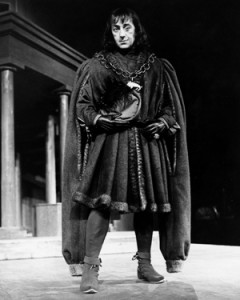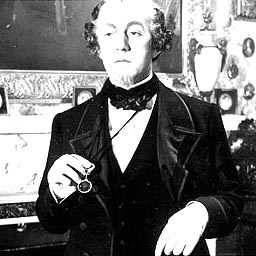On illness and bedtime reading: “Sore throat and headache; the responsibility, I’m sure, of the occupant of row A in the royal circle, seat no. 4, on Thursday night. One of the nice things about feeling rotten is having a good excuse to stay in bed tucked up with an entertaining book. . . . If symptoms persist for another day or so, I have at my side Gore Vidal’s Palimpsest, which is thick enough to see me through an illness rather than an indisposition.” He keeps up with the latest John Updike novels as well.
On old friends and old age: “Back at the hotel I tried to get out of a lift as Eric Ambler was trying to get in. . . . We nattered together for five minutes, verbally comparing failing eyesight and creaking limbs, sharing resentment—or maybe envy—at mutual friends who have boldly gone ahead. We stumbled apart, Eric to his bed, no doubt to dream up a thrilling plot for his next novel, and me to the bar to down a cold lager.”
On religion: “In early evening to a friend’s flat where I made my long overdue confession . . . It was a memorable experience which gently sponged away all my recent irascibility, anxieties and spiritual turmoil. Perhaps kneeling at a dining room table is more relaxing than the upright coffin of an elaborately carved confessional. . . . The bad habits of a lifetime, when tackled head on, seem only to bend, not break.” Guinness converted to Catholicism in his early forties.
On a loving wife: “Each week Merula puts on my desk a small vase of flowers she has picked. I rarely see her do this; her loving gestures are nearly always a surprise. This morning’s offering is of three minute dwarf daffodils, a few scillas, some balsam poplar leaves and something that looks like Rice Krispies threaded on cotton.”
On an undue compliment: “Today I have picked up a rather good notice in an American film trade paper for a performance I have never given in a film I have never heard of. It says that I am ‘almost unrecognizable’ in the film. I like the ‘almost.’ ”
On pet life: “Japheth escaped sometime after nine last night and went courting a neighbor’s King Charles spaniel bitch. He kept up his serenading until he was brought back at midnight. Apologies from us this morning, of course. How to make amends? If I send flowers, the spaniel may think they are from him. In any case, it would be a most unsuitable marriage.”
On the huddled masses: “Yesterday afternoon I went to the British Museum hoping to look at a 4000 B.C. Egyptian ivory figurine of a lady wearing, apparently, a pair of huge dark glasses of lapis lazuli and nothing else. . . . Milling, scampering children were too exhausting on a hot day, so I abandoned my quest and settled for half a dozen post cards of the lady. She looks a little hunched and chilly; now that I’ve got her picture home, I notice she has only got seven toes in all.”
 On Shakespeare: “Much of the day I have busied myself making notes on the small parts in Shakespeare, often nameless, which are rewarding to the actor if only he’ll not dismiss them as beneath his dignity. If I can work it up into a talk, I might call it, ‘Only a cough and a spit’—the phrase so often used by actors to explain away a lack of opportunity.”
On Shakespeare: “Much of the day I have busied myself making notes on the small parts in Shakespeare, often nameless, which are rewarding to the actor if only he’ll not dismiss them as beneath his dignity. If I can work it up into a talk, I might call it, ‘Only a cough and a spit’—the phrase so often used by actors to explain away a lack of opportunity.”
On the condition of the world: “There seems to be no end to the senseless wickedness done on this little planet in a minor solar system, and we puny mortals appear to be decreasing in importance so far as the universe is concerned. Faith, Hope and Charity are easy to pray for but I fear that in my case they are receding at the speed of light. For the moment anyway. The past few days have been worse than I am prepared to commit to paper. . . . Horrible news came through from Tasmania of the deliberate shooting down of thirty-four people by a deranged young man. Oh, the world, the world.”
On things that never change: “The ‘scurvy politicians’ are still at it; smiling at the cameras but clearly holding something sharp behind their backs. Their answers to questions are, as usual, blatantly evasive. Do they imagine we simple folk don’t notice such things?”
Like his gastronomic adventures, his references to some nineteen Shakespeare plays and his compassion for animals and nature, his frequent reference to the passing of friends is something of a niggling obsession and, too, a growing reminder of his own mortality. In one of his last entries, the morning of June 4, 1996, he writes, “I had hoped to complete this diary with no further obituaries but that was not to be.” His friend, actor and director Peter Glenville, whose directorial credits range from Becket to Summer and Smoke, had died of a heart attack a few hours after he had called Guinness from New York.
 Alec Guinness would die four years later, on August 5, 2000, age 86. His roles are wide-ranging, from Disraeli to Hitler, from Herbert Pocket to Ben Obi-Wan Kenobi, from Charles I to George Smiley, from Jacob Marley’s ghost to Sigmund Freud, from Colonel Nicholson to Pope Innocent III.
Alec Guinness would die four years later, on August 5, 2000, age 86. His roles are wide-ranging, from Disraeli to Hitler, from Herbert Pocket to Ben Obi-Wan Kenobi, from Charles I to George Smiley, from Jacob Marley’s ghost to Sigmund Freud, from Colonel Nicholson to Pope Innocent III.
And, too, there are the eight death-ending roles he played in Kind Hearts and Coronets—six of the characters murdered by Dennis Price in an attempt to be the next family duke. At first, Guinness was to play only six of the roles but he insisted on playing all eight. Although the eight included that of Lady Agatha d’Ascoyne—one would think the most challenging of all—his favorite was old, shuffling Vicar d’Ascoyne. Not surprising, with his Catholic faith and his being mistaken for a priest when he was so attired for a role, an incident which made a deep impression on him.
Guinness’ last screen appearance, which he didn’t mention in the diary, was a TV comedy/drama, Interview Day, released in 1996, at the time he was chronicling a small portion of his life in My Name Escapes Me.
“I have been unable,” he writes in the preface, “to disguise my phobias, irritations, prejudices (though the latter are often short-lived) and my childishness and frivolity. Sometimes, I hope, my occasional enthusiasms emerge.”
Indeed they do.